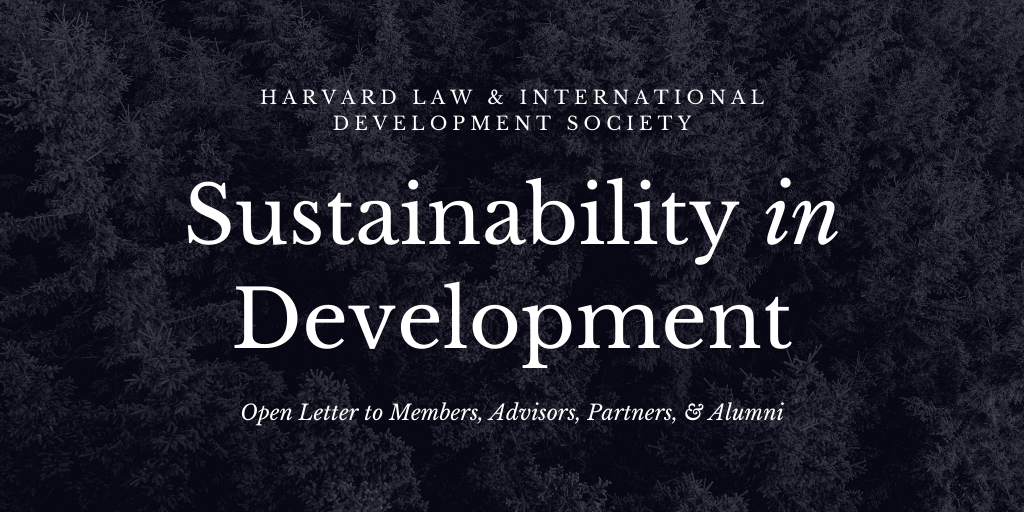By: João Marinotti
To the members, advisors, partners, and alumni of the
Law and International Development Society:
Over the years, LIDS has evolved from a student group at Harvard Law School into an interdisciplinary collaborative organization combining the strengths, resources, and passions of various graduate programs in the Greater Boston metropolitan area. This collaboration has led to the formation of a thriving community of individuals who are excited about the intersection of law, policy, and development. The dedication and generosity of our community has made it possible for LIDS to: (1) further the global conversation around sustainable development by hosting a yearly Symposium, in which renowned speakers reflect on critical topics in development; (2) aid development efforts through our research projects and pro bono work with leading law firms; and (3) train the next generation of development practitioners, academics, and global leaders through our alumni network, our access to internship and career opportunities, and our career development trips to New York and Washington, DC.
Building upon this legacy is a tremendous task, but one that LIDS is eager to undertake. We hope to empower our members to embrace their passions and seek out ways to make a difference in the world. We also aim to empower our organization to grow into an even more dynamic and effective institution in the world of development law and policy. To accomplish these goals, LIDS, as the Law and International Development Society, requires a robust, unified, and explicit definition of international development. This definition should and will continue to change overtime as LIDS’ conceptualization of international development evolves. The use of such a definition will allow us to allocate our financial and intellectual resources effectively in light of our growth in recent years.
For the 2019–2020 school year, LIDS has adopted the following proposal: International development is the process through which we will end poverty, protect our planet, and ensure that everyone can live in peace and prosperity. The tripartite goals within this definition resemble the goals listed by the UNDP in its analysis of the UN’s Sustainable Development Goals (SDGs). This similarity is not accidental. International development must account for the sustainability of social, environmental, and economic systems if development solutions seek lasting results.
What, then, is the exact relationship between sustainability, including the SDGs, and international development? According to Pedro Conceição, Director of UNDP’s HDR Office, the SDGs provide a destination in the form of 17 attainable global goals while development, on the other hand, provides the tools to get there. LIDS should adopt this approach to development and use the UN’s SDGs to define our ultimate law and policy “destinations” while focusing on the development means through which we will reach them.
We look forward to working with our members, partners, and mentors to continue building upon the traditions and legacy of LIDS. We hope that the adoption this definition of international development, will empower LIDS to promote further intellectual, practical, and interdisciplinary discussions across Harvard and beyond.
About the blogger: João Marinotti is Co-President of the Law and International Development Society.
Follow Harvard Law and International Development Society on Facebook and Twitter (@HarvardLIDS).

